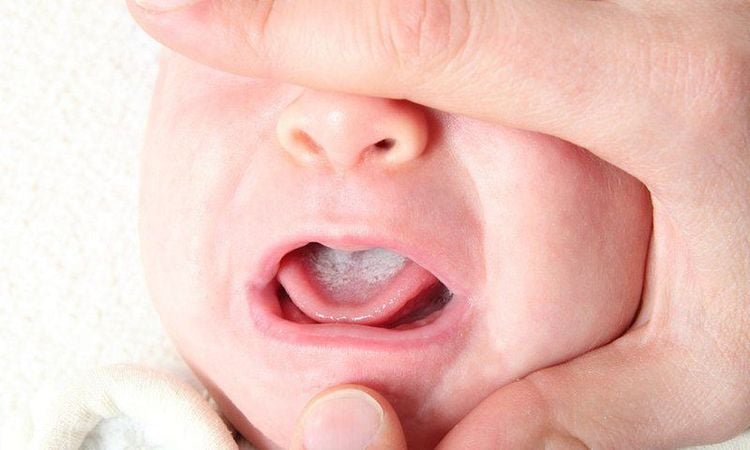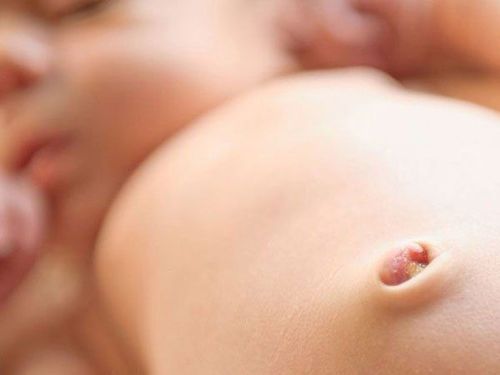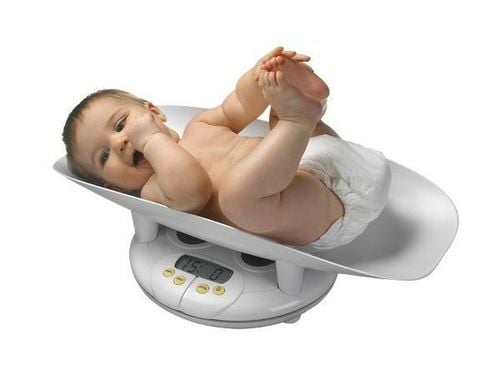The article is professionally consulted by Msc, Doctor Đoàn Ngọc Quỳnh Trâm - Pediatrics - Neonatology Department - Vinmec Nha Trang International General Hospital.
At the 13-week-old stage, babies are always cheerful and ready to engage in games, conversations, or any form of interaction with those around them. Parents should prepare and help their babies experience endless laughter during this phase.
1. Sensory development of a 13-week-old baby
It is truly astonishing that in just three months, a baby’s senses have developed almost to the level of an adult's. So, what can a 13-week-old baby do?
Your baby's vision is gradually improving. Beyond being able to see further, your baby now has a deeper sense of perception and can track movements from a distance of about 609 cm. They can also recognize the full spectrum of colors in objects.
Additionally, your baby will exhibit quicker reflexes as part of their development at 13 weeks old. For example, they may turn their head toward an intriguing sound, such as a CD playing lullabies (or perhaps some classical dance music). These experiences will help your baby explore their other senses. You can encourage this by introducing them to new scents, like a flower from the garden, a fresh peach, or a drop of your perfume.

2. Development of motor skills in a 13-week-old baby
Nowadays, your 13-week-old baby is becoming increasingly fascinated with their hands. They frequently open and close them, inspecting each tiny finger. Interestingly, babies at this stage have now realized that their hands are part of their own body. They’ve also discovered that their hands possess unique abilities, such as grasping, holding, and pulling. As your baby coordinates their eyes and motor skills, they may begin performing more delicate actions, such as manipulating a toy or tightly gripping your hair. This indicates that it’s a great time to provide your baby with rings or toys to help improve their grasping abilities.
3. Decoding the babbling sounds of a 13-week-old baby
In addition to verbal sounds, your baby can produce all kinds of laughs, squeals, and giggles. This helps them discover that making these sounds is a great way to grab the attention of those around them. For instance, your baby might scream when they want you to come immediately or laugh just to see you smile. When no one is around, your baby may enjoy listening to their own voice, and you might find them babbling away. Moreover, you should adopt methods to encourage your baby to enhance their language development even further.

4. Caring for the skin of a 13-week-old baby
If you live in a dry climate or if the humidity drops in the fall or winter, your baby’s normally soft skin can become dry and flaky. To combat dry skin discomfort, you should try the following:
- Bathe your baby less frequently.
- Use moisturizing soap for your baby’s baths.
- Gently pat the skin dry with a soft towel after bathing instead of rubbing.
- Apply fragrance-free moisturizing cream to your baby’s skin.
- Use a cool mist humidifier to add moisture to the air in the living area.
You should also focus on taking extra care of your baby's skin, which will help it become smooth again. However, if the skin becomes severely dry, with signs such as red patches or flakes, it could be eczema. If the condition does not improve within a week, it is recommended to take your baby to the doctor for a check-up and treatment.
5. Oral thrush in a 13-week-old baby
One of the conditions to watch out for when your baby is 13 weeks old is oral thrush, which is a common yeast infection in infants. The basic sign of this condition is small white patches that resemble blisters on the gums, tongue, inside the cheeks, or lips. Try not to disturb your baby too much. If you are breastfeeding and your baby has oral thrush, it may make feeding uncomfortable for your baby. Additionally, it can cause your nipples to feel itchy, tingling, or even painful while breastfeeding. If you notice signs of oral thrush, talk to your pediatrician. The doctor can prescribe an antifungal oral treatment for your baby and a cream for your breasts to treat the yeast infection effectively.

6. Life changes
You are not the only one who has to adapt to your baby. If you are the first new mother among your friends, it's likely that you have left a good impression on them. And it's not hard to explain why there have been changes in your daily routine, such as having lunch or complaining about work, and hearing your baby cry when something is not being fulfilled.
Therefore, you need to pay more attention to detailed descriptions of your baby's life, such as how well they eat, how they sleep, and whether their sleep is restful.
When a child shows signs of health issues, parents can take them to the Vinmec Medical System for timely check-ups and treatment.
To arrange an appointment, please call HOTLINE or make your reservation directly HERE. You may also download the MyVinmec app to schedule appointments faster and manage your reservations more conveniently.









